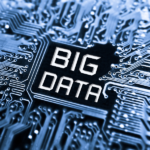Know about the trends of Information Technology
Information Technology (IT) is a dynamic field that constantly evolves, shaping the way we live, work, and interact with technology. Staying abreast of the latest IT trends is essential for individuals and organizations to leverage new opportunities and remain competitive. In this blog post, we will explore the top trends in Information Technology that are reshaping industries and influencing our digital landscape.
- Artificial Intelligence (AI) and Machine Learning (ML):
Artificial Intelligence and Machine Learning have gained significant momentum in recent years. AI technologies enable computers to simulate human intelligence, while ML algorithms allow systems to learn and improve from data without explicit programming. From personalized recommendations to autonomous vehicles and predictive analytics, AI and ML are transforming various sectors, revolutionizing how we interact with technology.
- Internet of Things (IoT):
The Internet of Things is the interconnection of everyday devices via the internet, enabling them to collect and share data. IoT has expanded from smart homes and wearables to industries such as manufacturing, healthcare, and transportation. The ability to connect, monitor, and control devices remotely enhances efficiency, enables predictive maintenance, and creates new business models.
- Edge Computing:
Edge Computing involves processing and analyzing data closer to the source rather than relying solely on centralized cloud servers. With the proliferation of IoT devices and real-time applications, edge computing reduces latency, enhances security, and enables faster decision-making by processing data at the network’s edge. It also alleviates bandwidth constraints and ensures data privacy.
- 5G Technology:
The fifth generation of wireless technology, 5G, promises ultra-fast speeds, low latency, and massive connectivity. With increased bandwidth and network capacity, 5G enables the seamless transmission of large data volumes, supporting technologies like autonomous vehicles, virtual reality, and the Internet of Things. It revolutionizes communication, enhances mobile experiences, and drives innovation in various industries.
- Cybersecurity and Privacy:
As the digital landscape expands, the need for robust cybersecurity measures becomes more critical. Cyberattacks continue to pose significant threats to organizations and individuals. IT trends in cybersecurity focus on advanced threat detection, AI-powered security solutions, and proactive defense mechanisms to protect sensitive data and safeguard privacy.
- Cloud Computing:
Cloud computing has revolutionized the way businesses store, manage, and process data. It provides scalable and flexible computing resources, eliminating the need for physical infrastructure and reducing costs. Hybrid and multi-cloud environments are becoming increasingly popular, allowing organizations to leverage the benefits of public and private clouds while optimizing performance and data security.
- Blockchain Technology:
Blockchain technology provides a decentralized and secure platform for recording and verifying transactions. It offers transparency, immutability, and eliminates the need for intermediaries. Beyond cryptocurrencies, blockchain applications span various sectors, including supply chain management, healthcare, finance, and digital identity verification, revolutionizing trust, and enhancing efficiency.
- Quantum Computing:
Quantum Computing is an emerging field that leverages the principles of quantum mechanics to perform complex computations exponentially faster than classical computers. Although still in its early stages, quantum computing has the potential to revolutionize fields such as cryptography, optimization, and drug discovery, solving problems that are currently intractable for traditional computers.
- Augmented Reality (AR) and Virtual Reality (VR):
AR and VR technologies create immersive experiences by overlaying digital content or simulating virtual environments. From gaming and entertainment to training simulations and virtual meetings, AR and VR have found applications across industries. The continued advancement of these technologies enhances user experiences, improves training efficiency, and offers new avenues for communication and interaction.




























